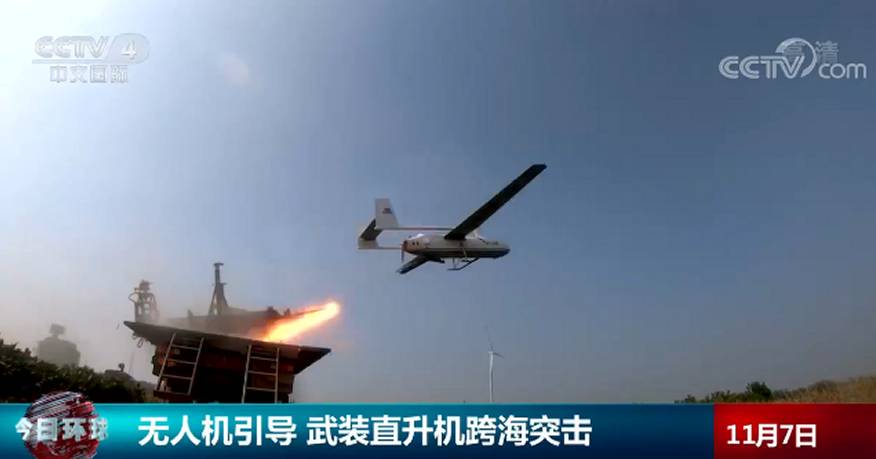Chinese army aviation brigade uses drones to guide helicopter missile strike
A drone was recently used to guide a helicopter to conduct beyond visual range (BVR) strike at sea during a live-fire drill by an army aviation brigade under the PLA 71st Army Group. All targets were accurately hit under the harsh conditions of dense fog. Gao Junfeng and Xiang Xu report on China Military Online.
Follow Army Recognition on Google News at this link

A drone was recently used to guide a helicopter to conduct beyond visual range (BVR) strike at sea during a live-fire drill by an army aviation brigade under the PLA 71st Army Group (Picture source: screenshot from CCTV)
In the past, the helicopter pilots had to identify the target through visual search when carrying out missile attacks. "Drone search and guidance cannot only reduce the impact of bad weather, but also expand the firing range", the brigade’s commanding officer stated.
Unmanned reconnaissance aircraft are featured with advantages of high flight height, long flight endurance, and multiple reconnaissance guidance methods. Since the beginning of this year, this brigade explored to hand over the search and guidance tasks initially undertaken by helicopters to the unmanned reconnaissance aircraft. With the drones’ assistance, the helicopter pilots just need to press the launch button, and the missile would accurately attack the target under the drone's guidance.
The biggest challenge here is the communication coordination and data sharing. So the brigade sought the assistance of technicians from the drone manufacturer to realize the "point-to-point" communication between the helicopter and the drone.
Simultaneously, tactical innovation also places higher requirements on the cooperation between helicopter pilots and drone controllers. Both parties have intensified training in the collaborative methods and skills. Although the live-fire drill encountered dense fog, the helicopter and drone successfully completed the training mission with the cooperation of the pilots and controllers.
In addition, this training exercise also increased the difficulty of the final assessment. It randomly deployed targets and set up air defense firepower nets to intercept, trying to be closer to actual combat. In the face of the complex environment, the helicopter, under the coordinated guidance of a drone, made within-visual range strike and beyond-visual-range strike flexibly, avoided "enemy’s" air defense fire strikes successively and destroyed targets efficiently, Gao Junfeng and Xiang Xu conclude.


























